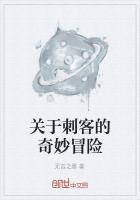Carneades was head of the contrary opinion, and maintained that glory was to be desired for itself, even as we embrace our posthumous issue for themselves, having no knowledge nor enjoyment of them. This opinion has not failed to be the more universally followed, as those commonly are that are most suitable to our inclinations. Aristotle gives it the first place amongst external goods; and avoids, as too extreme vices, the immoderate either seeking or evading it. I believe that, if we had the books Cicero wrote upon this subject, we should there find pretty stories; for he was so possessed with this passion, that, if he had dared, I think he could willingly have fallen into the excess that others did, that virtue itself was not to be coveted, but upon the account of the honour that always attends it:
"Paulum sepultae distat inertiae Celata virtus:"
["Virtue concealed little differs from dead sloth."--Horace, Od., iv. 9, 29.] which is an opinion so false, that I am vexed it could ever enter into the understanding of a man that was honoured with the name of philosopher.
If this were true, men need not be virtuous but in public; and we should be no further concerned to keep the operations of the soul, which is the true seat of virtue, regular and in order, than as they are to arrive at the knowledge of others. Is there no more in it, then, but only slily and with circumspection to do ill? "If thou knowest," says Carneades, "of a serpent lurking in a place where, without suspicion, a person is going to sit down, by whose death thou expectest an advantage, thou dost ill if thou dost not give him caution of his danger; and so much the more because the action is to be known by none but thyself." If we do not take up of ourselves the rule of well-doing, if impunity pass with us for justice, to how many sorts of wickedness shall we every day abandon ourselves? I do not find what Sextus Peduceus did, in faithfully restoring the treasure that C. Plotius had committed to his sole secrecy and trust, a thing that I have often done myself, so commendable, as I should think it an execrable baseness, had we done otherwise; and I think it of good use in our days to recall the example of P. Sextilius Rufus, whom Cicero accuses to have entered upon an inheritance contrary to his conscience, not only not against law, but even by the determination of the laws themselves; and M. Crassus and Hortensius, who, by reason of their authority and power, having been called in by a stranger to share in the succession of a forged will, that so he might secure his own part, satisfied themselves with having no hand in the forgery, and refused not to make their advantage and to come in for a share: secure enough, if they could shroud themselves from accusations, witnesses, and the cognisance of the laws:
"Meminerint Deum se habere testem, id est (ut ego arbitror) mentem suam."
["Let them consider they have God to witness, that is (as I interpret it), their own consciences."--Cicero, De Offic., iii. 10.]
Virtue is a very vain and frivolous thing if it derive its recommendation from glory; and 'tis to no purpose that we endeavour to give it a station by itself, and separate it from fortune; for what is more accidental than reputation?
"Profecto fortuna in omni re dominatur: ea res cunctas ex libidine magis, quhm ex vero, celebrat, obscuratque."
["Fortune rules in all things; it advances and depresses things more out of its own will than of right and justice."--Sallust, Catilina, c. 8.]
So to order it that actions may be known and seen is purely the work of fortune; 'tis chance that helps us to glory, according to its own temerity. I have often seen her go before merit, and often very much outstrip it. He who first likened glory to a shadow did better than he was aware of; they are both of them things pre-eminently vain glory also, like a shadow, goes sometimes before the body, and sometimes in length infinitely exceeds it. They who instruct gentlemen only to employ their valour for the obtaining of honour:
"Quasi non sit honestum, quod nobilitatum non sit;"
["As though it were not a virtue, unless celebrated"--Cicero De Offic. iii. 10.] what do they intend by that but to instruct them never to hazard themselves if they are not seen, and to observe well if there be witnesses present who may carry news of their valour, whereas a thousand occasions of well-doing present themselves which cannot be taken notice of? How many brave individual actions are buried in the crowd of a battle? Whoever shall take upon him to watch another's behaviour in such a confusion is not very busy himself, and the testimony he shall give of his companions' deportment will be evidence against himself:
"Vera et sapiens animi magnitudo, honestum illud, quod maxime naturam sequitur, in factis positum, non in gloria, judicat."
["The true and wise magnanimity judges that the bravery which most follows nature more consists in act than glory."--Cicero, De Offic. i. 19.]
All the glory that I pretend to derive from my life is that I have lived it in quiet; in quiet, not according to Metrodorus, or Arcesilaus, or Aristippus, but according to myself. For seeing philosophy has not been able to find out any way to tranquillity that is good in common, let every one seek it in particular.















